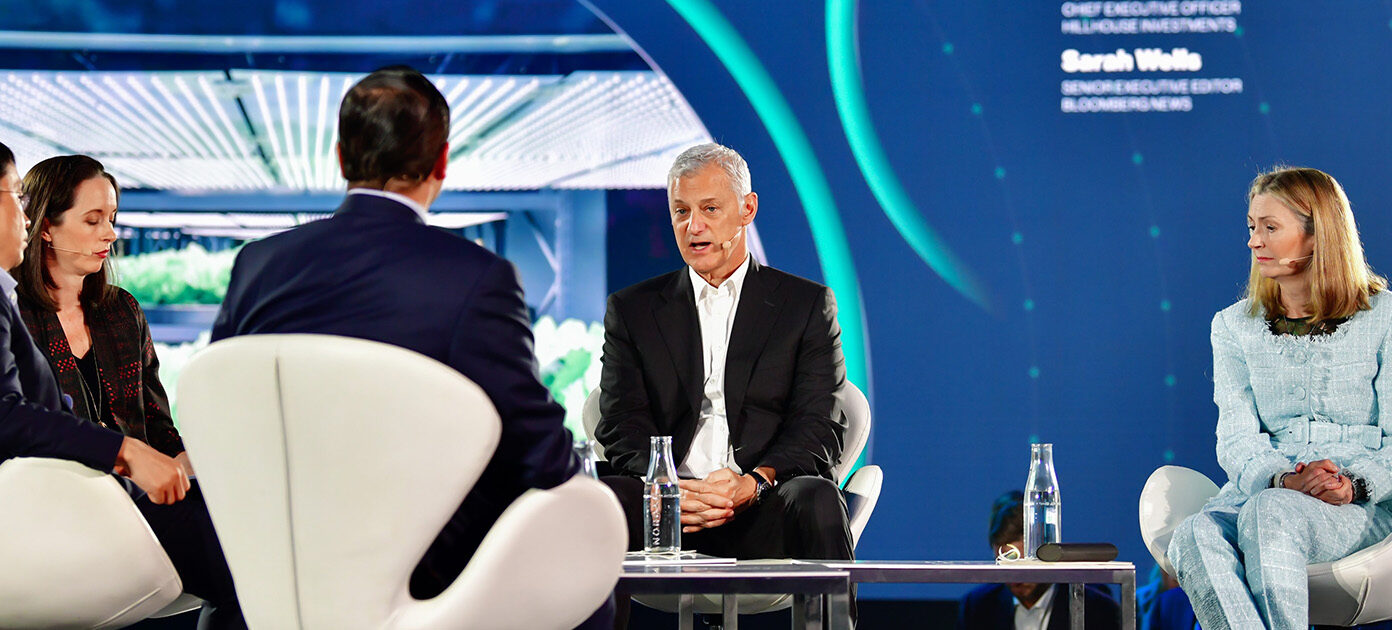Financing the climate transition is ‘the responsible thing to do’, but that cannot be leapfrogged: panellists


It is not always possible to leapfrog from dirty fuels to renewable energy – this was a refrain from various chief executive officers of financial services companies at a Bloomberg New Economy Forum panel last Wednesday (Nov 16).
In fact, a blanket ban on the usage of and investments in fossil fuels at this point may hurt developing economies and leave some households behind in “fuel poverty”, several panellists pointed out.
The session focused on financing the new economy, and panellists devoted a third of it to discussing whether the sustainable investing movement has lost momentum.
“The responsible thing to do right now is to allocate more and more into transition finance… That transition will be moving from the dirtiest forms of fuel to ever cleaner forms of fuel, and eventually, to purely renewable power,” said Bill Winters, group chief executive at Standard Chartered.
The transition to renewable sources must happen over time, while ongoing development of the oil and gas sector is still necessary, he said, so as not to stifle growth opportunities for developing economies.
Moderator of the discussion, Bloomberg senior executive editor Sarah Well, commented that bank loans to fossil fuel companies has risen 15 per cent in the first nine months of 2022. In response, Winters acknowledged that his bank has increased financing to the world’s biggest oil company Saudi Aramco as well as BP (British Petroleum) because these fossil fuel companies are “trying to do the right thing”.
Part of that financing has gone into a green hydrogen project in Saudi Arabia and funding for other renewables, he said.
Fidelity International’s chief executive officer Anne Richards noted that fuel poverty is a particular challenge for households in developing countries.
“If you’re sitting in a developing country where your only local and cheap source of energy is thermal coal, well, there’s a duty on everybody else to help find alternatives to that.
“Otherwise, the economically sensible thing for minimising harm to your local population, who will otherwise be in fuel poverty, is just to exploit the thermal coal,” she said.
The “optimal paths” towards clean energy may differ for each country and community, Richards added.
“We’ve got to get on that path and accept that it’s not going to go in a straight line,” she said.
Ongoing generational transfers of private wealth will play a significant role in the sustainability conversation, said Hazem Ben-Gacem, co-chief executive officer of Investcorp. He noted that young wealthy individuals have strong convictions about deploying capital according to their beliefs and principles.
“I think that probably will be the biggest push in favour of the renewable energy kind of marketplace, because a big portion of the US$120 trillion (in global private wealth) will be in the hands of individuals who have strong views about the environment, around the future, around diversity and inclusion, and what proper firms should be looking at,” Ben-Gacem said.
The panellists expressed optimism on the growth of Asia as a region, as well as in US-China relations.
Richards said she is “more positive” on Asia, both from the markets and flow perspectives for 2023. China being “in its own interest rate policy cycle” and its gradual reopening from the pandemic sets the scene for a more positive and earlier rebound in sentiments around Asia, she said.
China has been trimming interest rates to shore up its economy, even as central banks in other key economies have continued to hike rates to cool inflation.
Supply chain disruptions in key global nodes have also given smaller economies, including those in South-east Asia, opportunities to acquire a greater share of value, as investments historically centered on one site get shifted.
Winters noted that while the US economy remains resilient, growth is rotating to this part of the world. Singapore, in particular, is well-positioned to benefit from these shifts, he said.
On US and China, Winters described the meeting between Joe Biden and Xi Jinping on Monday on the sidelines of the Group of 20 summit a “green shoot”, which struck a positive note for previously tense relations.
“I think it’s certainly a sign that there’s a will not to have things get worse… The idea that we could decouple was never really very practical and it would have been extremely costly to both sides,” he said.
“Things are shaping up in a reasonably encouraging way and we’re continuing with our investments in China and the US,” Winters added.
Intense competition between the world’s two largest economies may remain, but this could lead to new technologies that the world can benefit from, said Hillhouse Investments’ founder and chief executive officer Zhang Lei. The private equity firm has investments in both countries.
“It’s a good thing for the world, in the way of collaboration or competition, (if we are) working together to solve the world’s problems. Simply put, climate has no borders and cancer has no borders, right?”
Winters agreed. “The period of intense competition, from our perspective, is fine. We actually love competition because it makes everybody up their game, and that makes everybody a little bit better,” he said.
Winters also underscored the role financial institutions play in the global transition to net zero.
“We need to mobilise at pace institutional, individual and public capital to fund sustainable development goals, most urgently to accelerate the net zero transition, but also to bridge funding gaps in healthcare, infrastructure and energy. This is where financial institutions like us have a critical role to play,” he said, on the sidelines of the forum.
Source: The Business Times © Singapore Press Holdings Limited. Permission required for reproduction.